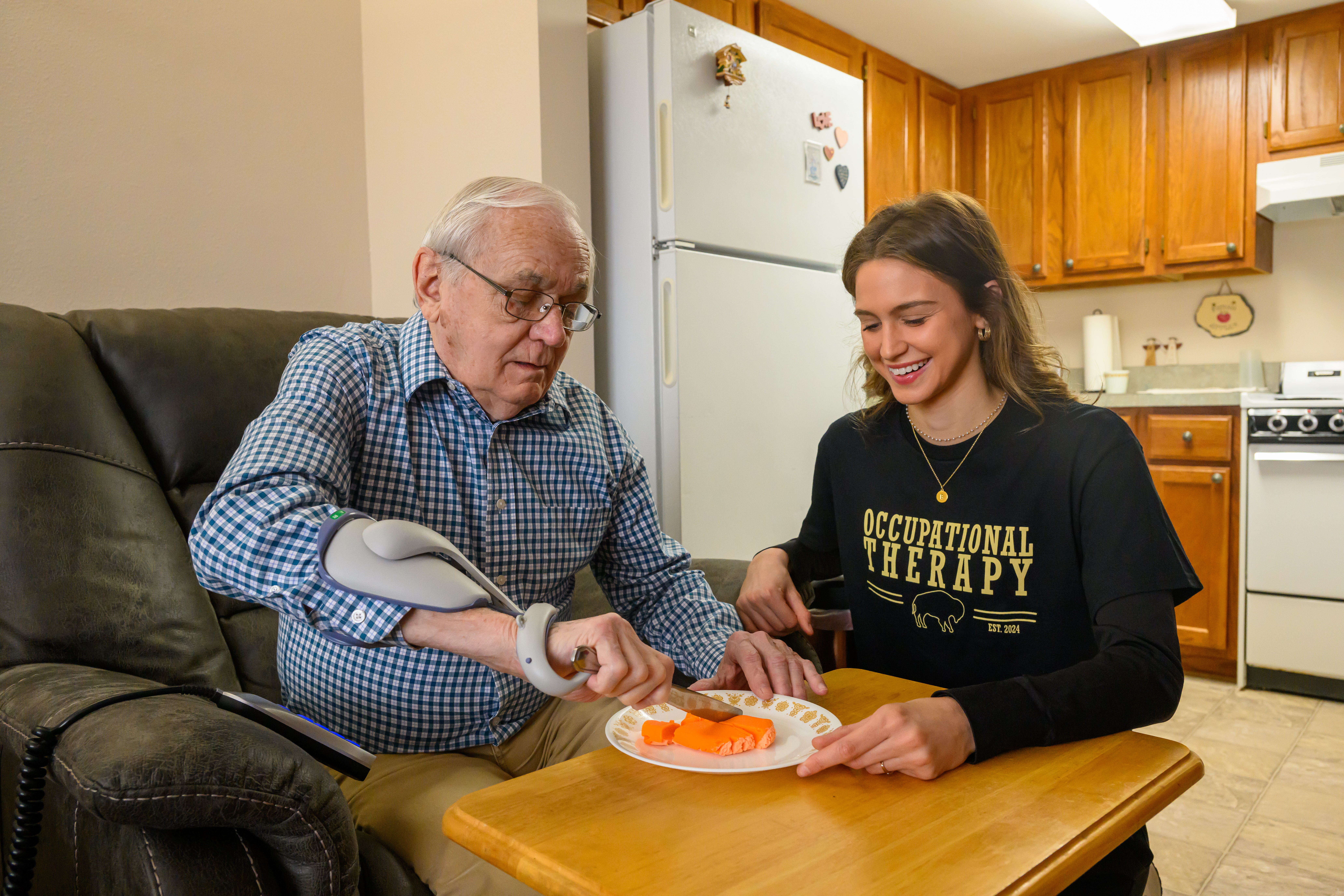Occupational Therapy
Occupational Therapy
Mission
The mission of the occupational therapy program at Harding University is to educate and inspire students to become skilled occupational therapy practitioners committed to lifelong learning. Our graduates will exemplify the principles of faith, servant leadership, and ethical care, making a lasting impact guided by the teachings of Christ.
Vision
To be a transformative force in occupational therapy education, cultivating competent and compassionate occupational therapists who integrate Christian values into their practice, fostering healing, hope, and holistic well-being for individuals and communities.
Curriculum
Our goal is to prepare students to positively impact the lives of individuals, families, and communities through the transformative power of occupational therapy. We firmly believe in integrating adult learning principles, transformative learning theories, and experiential learning theories to enhance our teaching practices. By cultivating a collaborative and experiential learning environment, our program equips students to become compassionate, competent, reflective, lifelong learners in the field of occupational therapy.
Accreditation (Applicant Program)
The entry-level occupational therapy master’s degree program has applied for accreditation and has been granted Candidacy Status by the Accreditation Council for Occupational Therapy Education (ACOTE) of the American Occupational Therapy Association (AOTA), located at 6116 Executive Boulevard, Suite 200, North Bethesda, MD 20852-4929. ACOTE’s telephone number c/o AOTA is (301) 652-AOTA and its web address is www.acoteonline.org.
The program must have a pre-accreditation review, complete an on-site evaluation, and be granted Accreditation Status before its graduates will be eligible to sit for the national certification examination for the occupational therapist administered by the National Board for Certification in Occupational Therapy (NBCOT). After successful completion of this exam, the individual will be an Occupational Therapist, Registered (OTR). In addition, all states require licensure in order to practice; however, state licenses are usually based on the results of the NBCOT Certification Examination. Note that a felony conviction may affect a graduate’s ability to sit for the NBCOT certification examination or attain state licensure.
NOTE: Students must complete 24 weeks of Level II fieldwork within 12 months following completion of
the didactic portion of the program.
Cost of Attendance
Learn more about the Federal Financial Aid Cost of Attendance and find a comprehensive listing of expenses that may be associated with enrollment.
Application Checklist
Technology & Software Requirements
As two courses are offered in a distance education format students should have access to an appropriate digital device and a reliable Internet connection. A laptop or desktop is the recommended device for online learning. Broadband connectivity is required, as many classes incorporate rich media content.
Hardware/Operating Systems
- A personal computer running Microsoft Windows 8 / 10 / or Apple Macintosh running OS X
- Camera/microphone/headphones (sometimes called peripherals)
Some Apple users may experience technical issues with certain publisher-related course software. For this reason, a Windows PC is recommended.
To see which browsers are supported by Canvas, how to update your browser, and additional required components (e.g., Flash and Java) please visit the Canvas Guides.

